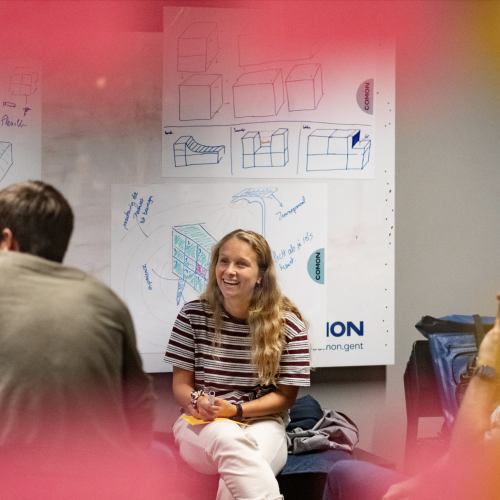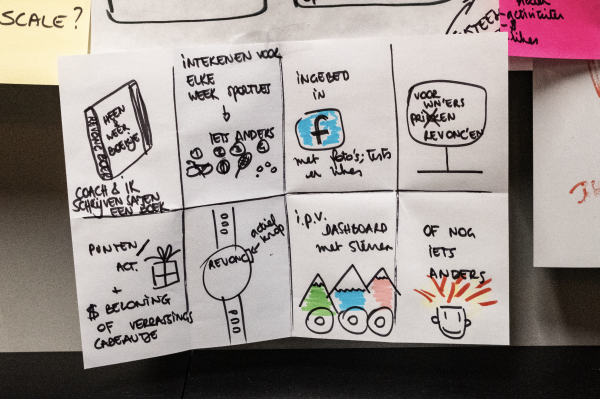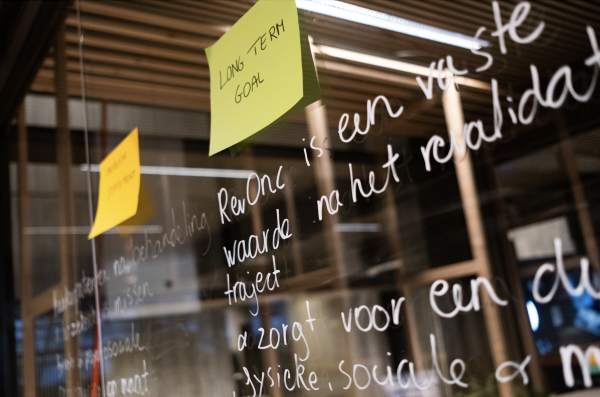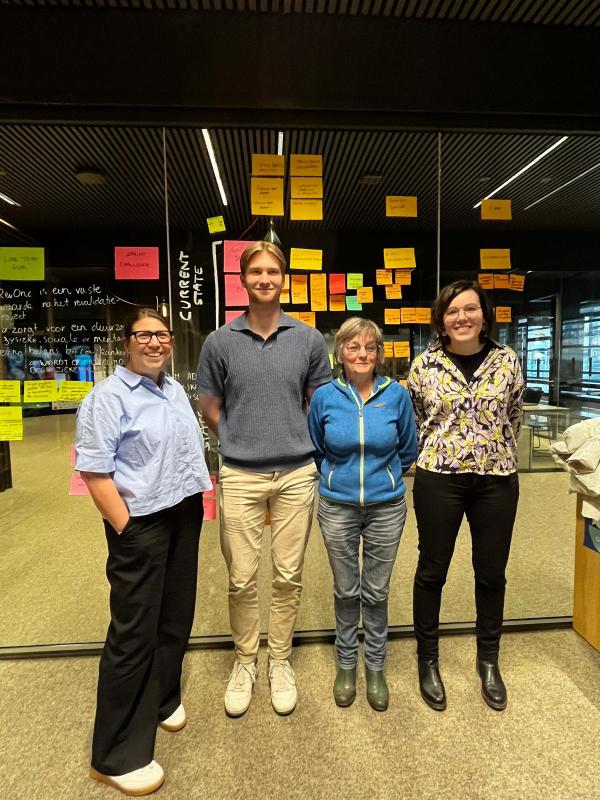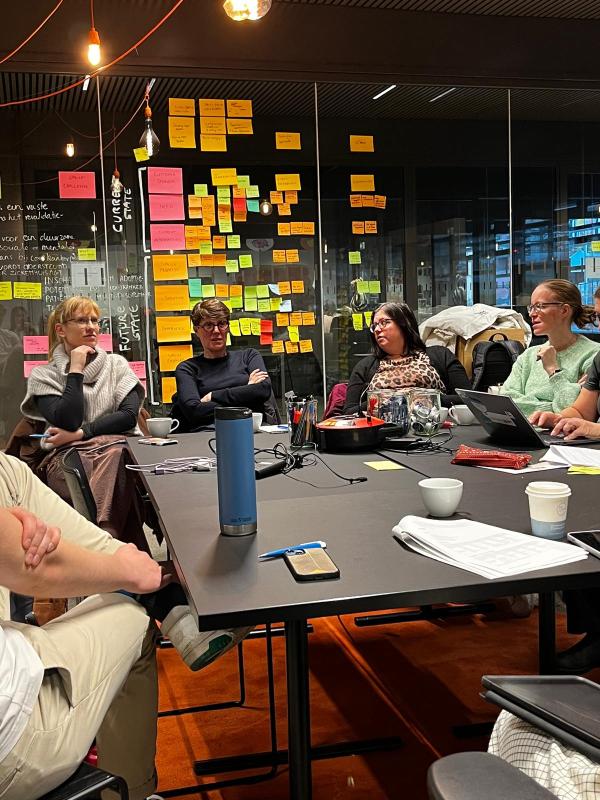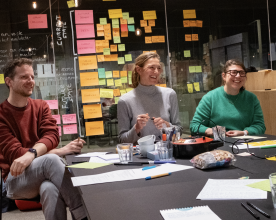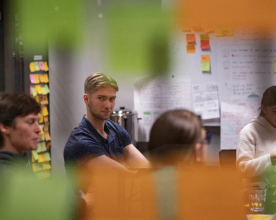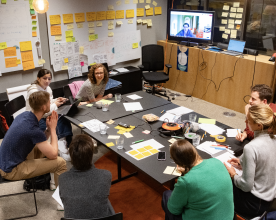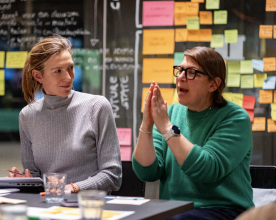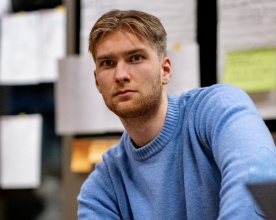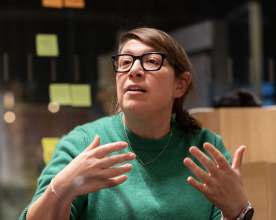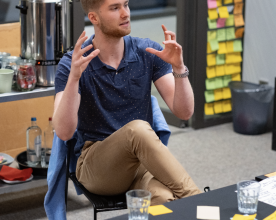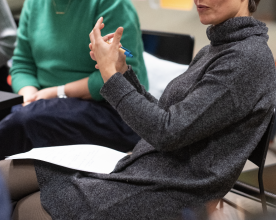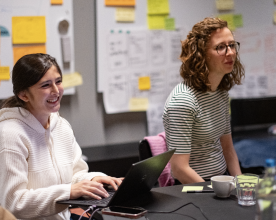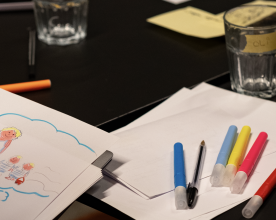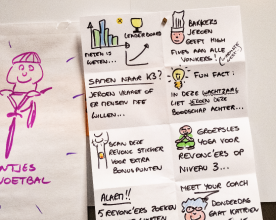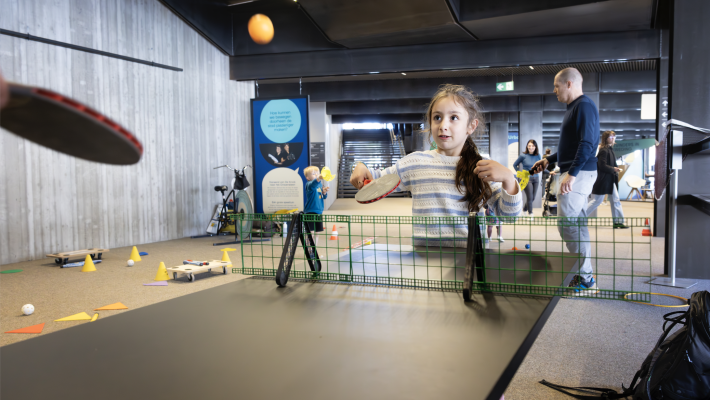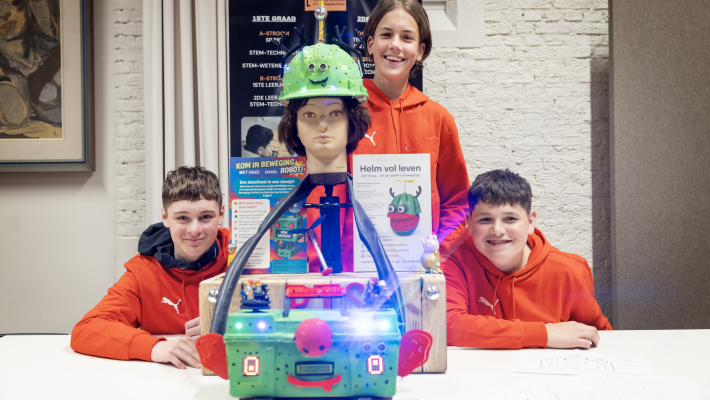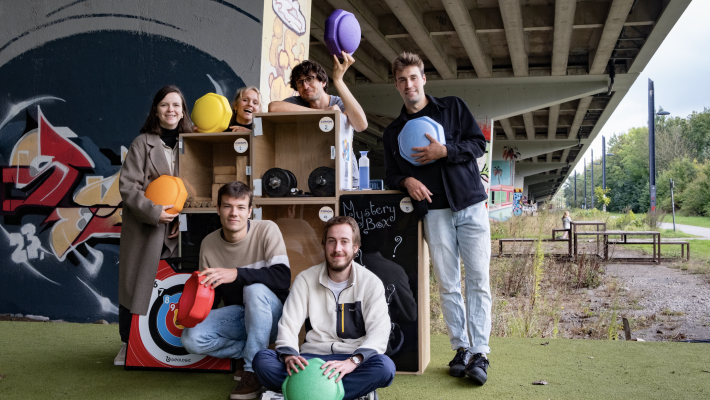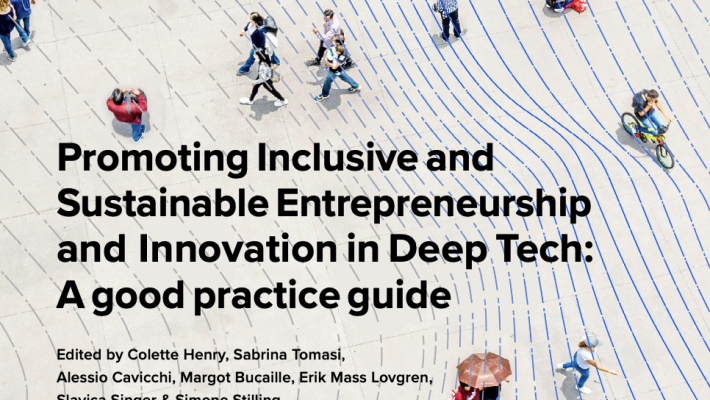RevOnc: an app to stay active together after cancer
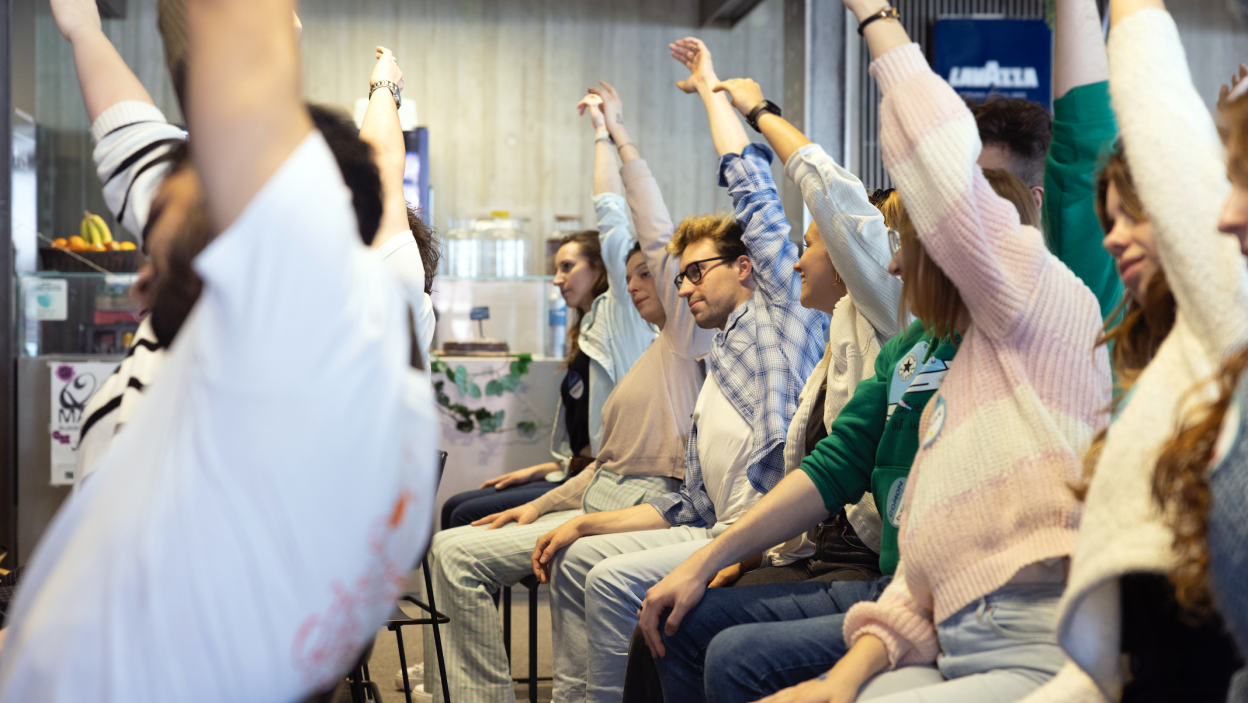
During one of Comon's Microlabs a team of inventors is working on an innovative app that supports people with a cancer experience as they stay active even after their hospital stay. They want to keep people in touch with their peers and allow oncology coaches to track their progress. This initiative, called “RevOnc,” wants to help people in Ghent when they are at the risk of falling into a black hole. Meet RevOnc.
Problem: the black hole after hospital rehabilitation
RevOnc is an app for people who are closing the hospital door behind them after a cancer treatment. They realize better than anyone how important it is to (continue to) exercise, but sometimes lack personalized advice, social contact and motivation. Many end up in a “black hole” after hospital rehabilitation. Although they have received physical and mental support during their rehabilitation, a great unmet need remains. This is due to:
-
Long-term physical side effects of chemotherapy and other treatments.
-
Lots of pressure in resuming daily activities, such as work and family life.
-
Difficulty maintaining enough social contact, finding mental peace and confidence, and staying physically active/regainging stronger.
Solution: an app to bring people together to exercise after cancer
RevOnc offers these people opportunities to do physical activity through an individual exercise schedule, and a system to invite peers to exercise together. The app helps patients:
-
Stay motivated by setting clear personal goals.
-
Get physical and social support, such as through personalized programs and an online community.
-
Find a crucial part of the support network that helps them stay mentally and physically stronger during this challenging transition phase.
How does the RevOnc-app work exactly?
First, the app helps you set a personal exercise goal, such as “I want to go camping at the coast with my grandchildren next year” or “I want to be fitter during household chores in three months”. You easily set your goal via a fill-in box or by choosing key words. The app then generates an image and description of your goal, which remains central as a source of motivation.
Based on your goal, the app analyzes which movement components you need, such as strength, fitness, balance and mental resilience, and clarifies this with practical examples. It then identifies your exercise preferences and current exercise level, with simple questions and trials such as “How many flights of stairs can you go up without a break?”
With this input, the app creates a personalized exercise schedule in a clear path to your goal, similar to Duolingo's style. Each exercise brings you one step closer and is rewarded, keeping you motivated to keep going.
Exercising is more enjoyable when you don't have to do it alone. That's why the app also gives you a way to invite peers to exercise together. How? You post your add online, and other users can respond. A list of activities you can do together with others appears in the app. Each entry shows a photo and the first name of the organizer, the title of the activity, the number of participants who can participate, the difficulty level, the distance to the location and the date. You can discover activities by swiping or sort the list by distance, date, difficulty or personal preferences.
The brains behind RevOnc
- Yorin is a master's student in physical therapy, an entrepreneur at heart and a finalist in Expedition DO! at Ghent University.
- Cathy is a policy advisor at the City of Ghent Sports Department and is going through a cancer trial herself.
- Katrien Katrien is a retired oncology nurse with more than 40 years of experience.
- Sofie is an oncopsychologist and works as project coordinator Oncological Support Team at OLV Hospital Aalst.
- Stijn is an IT- and AI-enthusiast and a lecturer at the Howest.
Advice from experts
Comon brings together people with different areas of expertise. During the design sprint, experts came to give advice to the RevOnc team.
- Femke Ongenae en Femke De Backere, computer scientists Ghent University-imec
- Elisabeth Van der Plaetsen, Back on Track (helps cancer patients get moving in order to take life back into their own hands)
- Ulla Lust, Movementcoach oncology, former cancer patient and author of the book "Bewegen na Kanker" (“Moving After Cancer")
- Delfien Van Dyck en Heleen Demeyer, movement scientists Ghent University
Elisabeth Van der Plaetsen of Back on Track (a non-profit that helps cancer patients get moving in order to take life back into their own hands): “If you bring people together around a cancer patient's dream, it is important that an experienced professional provides guidance. Suppose someone dreams of a triathlon and would find peers through the app to do it together, there are risks involved.” Back on Track has already organized many group programs for cancer patients and those around them. Elisabeth testifies about this: “Many cancer patients prefer to exercise together with non-cancer patients after their rehabilitation process. We took care of that in the composition of our groups. That diversity was always greatly appreciated.”
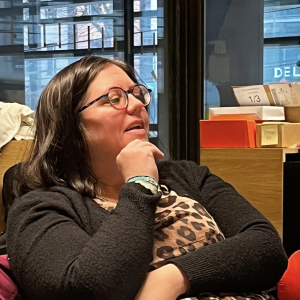
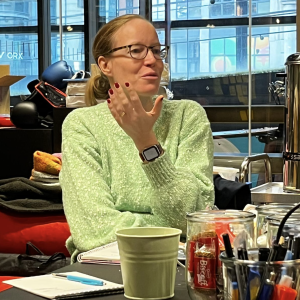
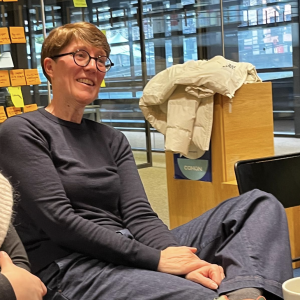
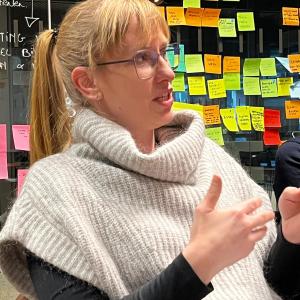
What's that, a Microlab?
Comon is all about experimenting and bringing people together. That’s precisely what happens during Microlabs. In these labs, diverse teams of inventors work on shaping and testing innovative ideas into functioning prototypes.
